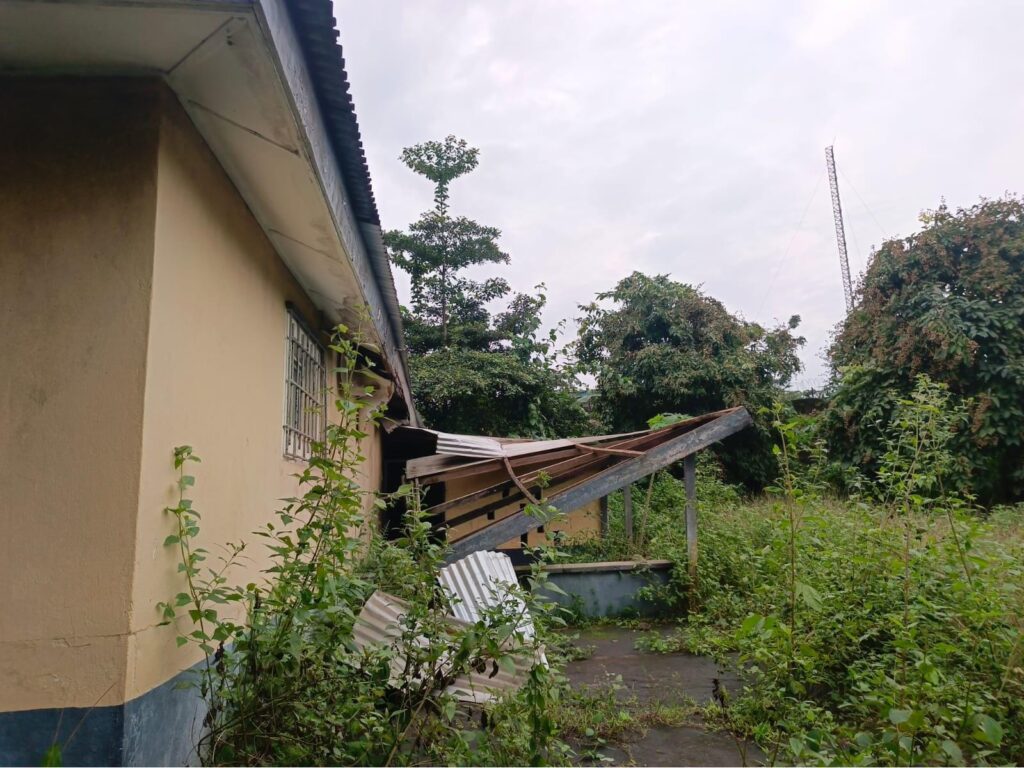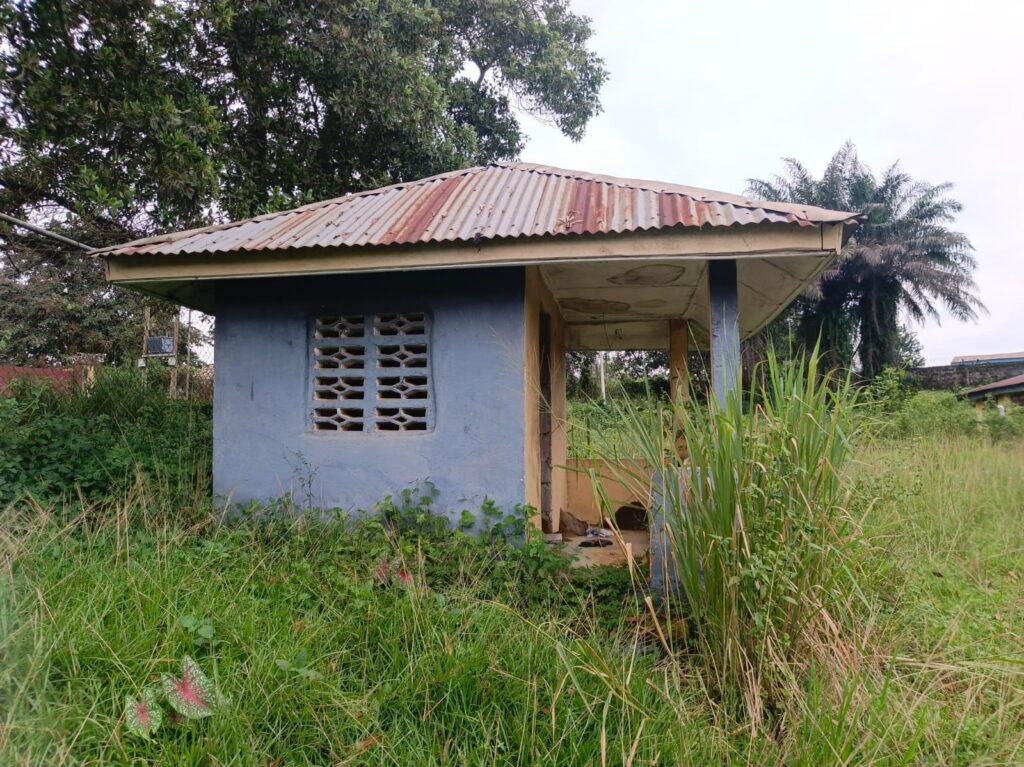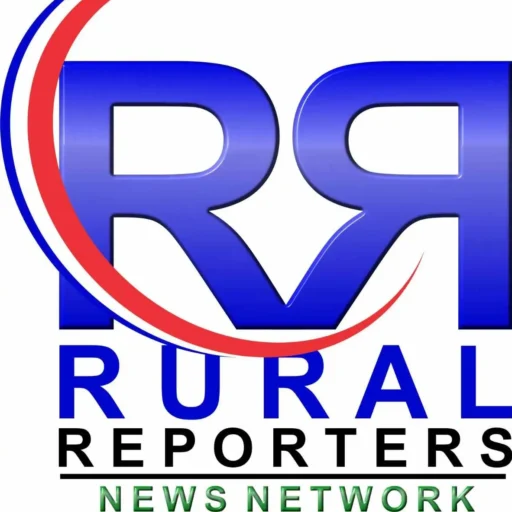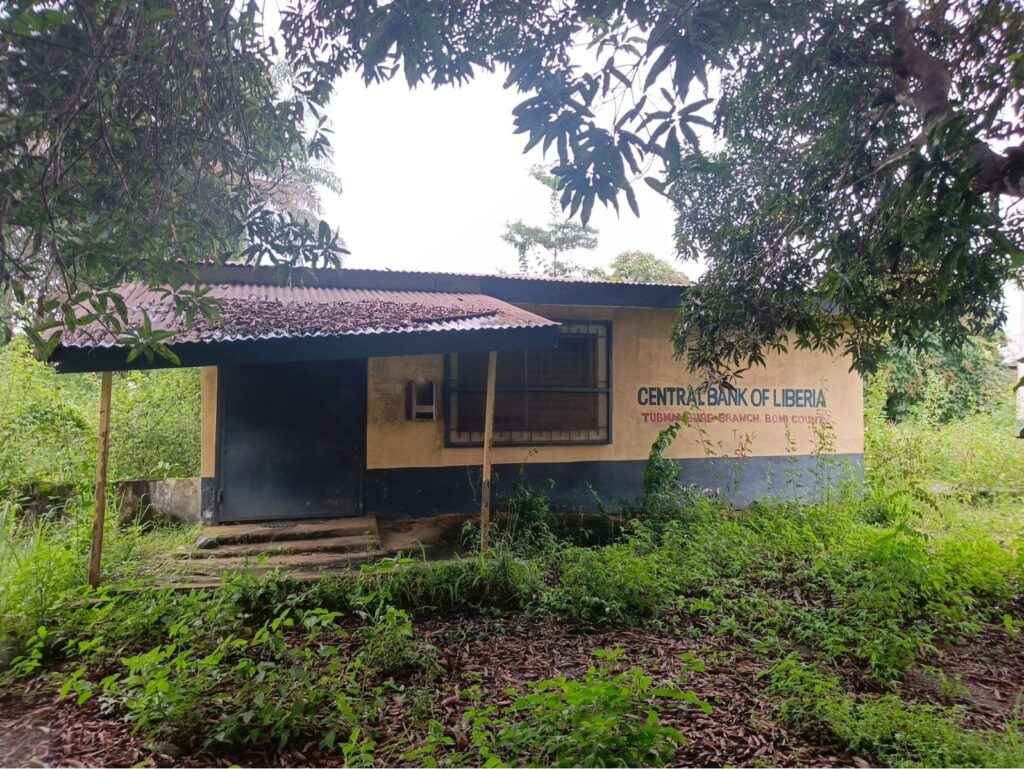By Ernest Kpehe Moibah
Tubmanburg, Bomi County-Standing at the heart of Tubmanburg is a crumbling monument to what could have been a turning point for financial inclusion in Western Liberia. The former Central Bank of Liberia (CBL) regional office; once a beacon for economic access for Bomi, Gbarpolu, and Grand Cape Mount Counties, now lies abandoned, swallowed by tall grass, its windows clouded with dust, and its doors at the mercy of looters.
The building, established to decentralize banking services for the region, was meant to save residents from costly and exhausting trips to Monrovia for basic financial transactions. For years, it brought the promise of closer banking services to government workers, retirees, traders, and ordinary citizens. Today, that promise is a bitter memory.

A Daily Struggle for Basic Banking
With the facility defunct, residents are forced into a punishing routine. Pensioners, many in frail health make long, uncomfortable journeys to the capital just to withdraw monthly stipends. Business owners often spend an entire day on bank errands, losing both time and income. Others keep large sums of cash at home, heightening the risk of robbery.
“This building was a lifeline for our region,” recalls David Kollie, a retired teacher from Bomi County. “We could access our money without hardship. Now we are left out, struggling like we are not part of Liberia’s progress.”
Decentralization Without the Western Region
Ironically, the Central Bank of Liberia has been publicly championing its decentralization program; opening new facilities and launching mobile banking in parts of the country. Yet, the Western Region remains conspicuously excluded.
Local leaders and civil society groups say this neglect contradicts the very principle of decentralization. “You cannot talk about national financial inclusion while leaving out an entire region,” argued Martha Gaye Samuels, a businesswoman from Robertsport who transited in Tubmanburg. “It is a form of economic discrimination.”

A Building at Risk of Vanishing
Beyond the economic cost, there is a looming threat of complete asset loss. The abandoned structure is deteriorating fast, with broken fixtures, creeping vegetation, and no security presence. Residents fear it will soon be stripped bare by unknown individuals, turning a public investment into nothing more than rubble and regret.
An Urgent Call to Act Now
Citizens across Bomi, Gbarpolu, and Grand Cape Mount are urging the Central Bank of Liberia and national government to act immediately. They demand:
- Rehabilitation of the abandoned facility to restore full banking operations in the region.
- Deployment of modern banking solutions, including mobile banking vans and digital service points, as a stopgap while the building is restored.
- Inclusion of the Western Region in all future CBL decentralization plans.
The frustration is mounting, and the message from the region is clear: financial inclusion delayed is financial inclusion denied.
“As Liberia talks about economic growth, you cannot grow an economy while locking out thousands of citizens from banking services,” says Samuel Yancy, a civil society activist in Gbarpolu County. “The Western Region has waited long enough. We need action not promises and we need it now.”
If the call goes unanswered, residents warn, the gap between urban and rural financial access will widen further, undermining the nation’s broader economic goals.
The time for action is not in the next budget year or after another study. IT IS NOW! Every day of delay deepens the exclusion of the Western Region from Liberia’s financial map.





2 Comments
Great online media entity, specifically focusing on Rural Reporting..
**mitolyn reviews**
Mitolyn is a carefully developed, plant-based formula created to help support metabolic efficiency and encourage healthy, lasting weight management.